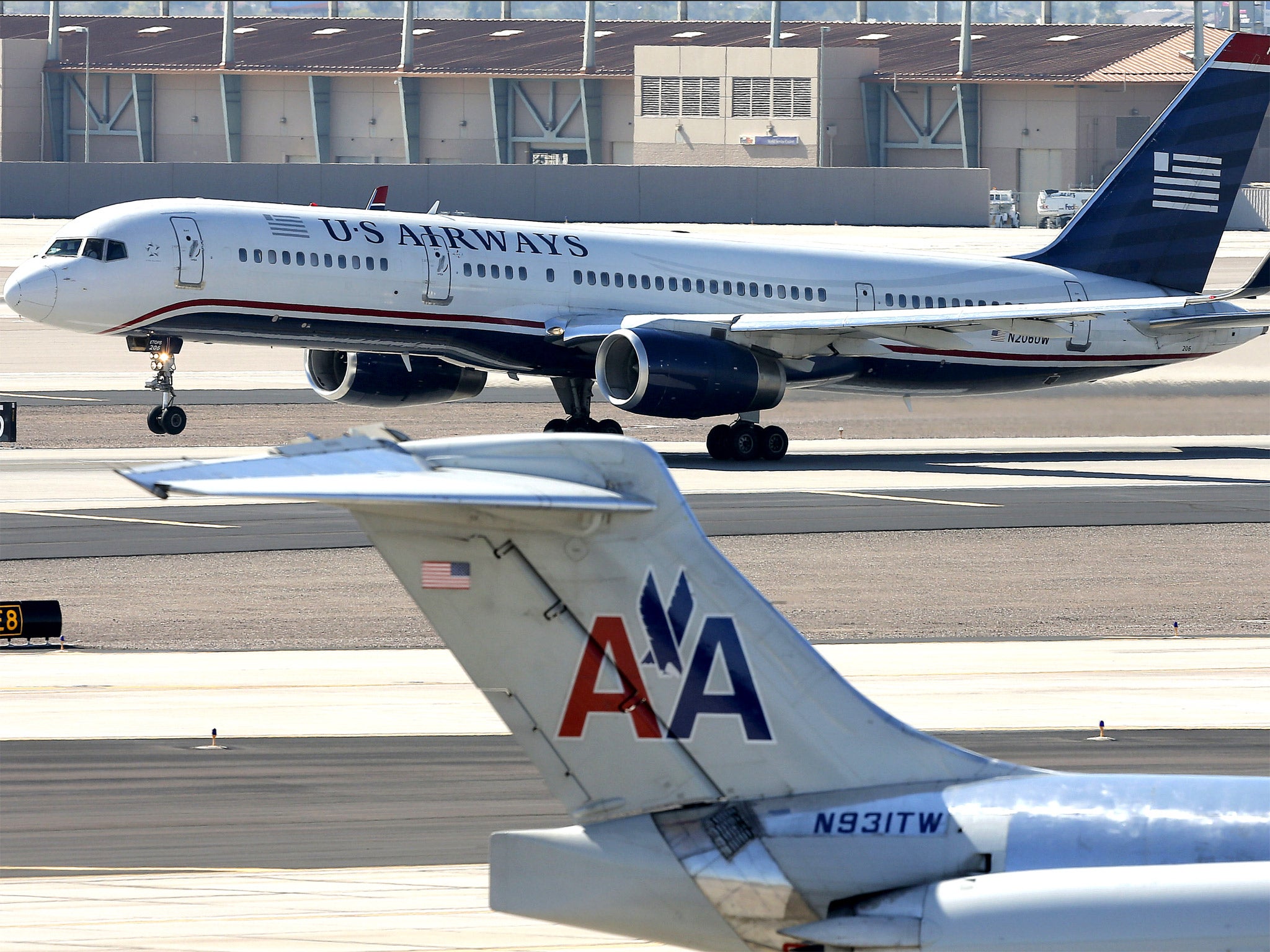US government moves to block $11bn American Airlines-US Airways merger
Deal would leave four airlines in control of 80% of American commercial air travel market - leading to fears over higher fares and fees

Your support helps us to tell the story
From reproductive rights to climate change to Big Tech, The Independent is on the ground when the story is developing. Whether it's investigating the financials of Elon Musk's pro-Trump PAC or producing our latest documentary, 'The A Word', which shines a light on the American women fighting for reproductive rights, we know how important it is to parse out the facts from the messaging.
At such a critical moment in US history, we need reporters on the ground. Your donation allows us to keep sending journalists to speak to both sides of the story.
The Independent is trusted by Americans across the entire political spectrum. And unlike many other quality news outlets, we choose not to lock Americans out of our reporting and analysis with paywalls. We believe quality journalism should be available to everyone, paid for by those who can afford it.
Your support makes all the difference.The US government is challenging the proposed $11bn (£7bn) merger of US Airways and American Airlines, a deal between two of the largest airlines that it says would result in “substantial harm to consumers” in the form of higher fares and fees.
The US Justice Department, joined by the attorneys general of six US states, filed a lawsuit Tuesday in federal court in Washington, DC.
A spokesman for US Airways Group Inc. had no immediate comment. American Airlines parent company, AMR Corp., did not immediately return messages seeking comment. Shares of both companies plunged, and other airline shares fell sharply as well.
The US government's challenge to the merger was surprisingly broad. In the last five years, antitrust regulators had allowed three other major airline mergers to go ahead.
The Justice Department had been expected to pressure American and US Airways into giving up some takeoff and landing slots at Reagan National Airport outside Washington, where they stood to be the dominant carrier. Instead, the government argued that the merger would hurt American consumers by eliminating a competitor on many routes.
If the merger leads to even small increases in ticket prices or airline fees, it would cost American consumers hundreds of millions of dollars each year, the department said.
As examples, the government cited round-trip fares for travel this month between Miami and Cincinnati and between Houston and New York in which US Airways' fares are far lower than American and other competitors.
Shares of both airlines plunged on news of the lawsuit. US Airways shares fell $1.99, or 10.6 percent, to $16.83 in morning trading. AMR shares were taken off the New York Stock Exchange shortly after the company filed for bankruptcy protection in late 2011 but still trade over the counter; they were down $2.31, or 40 percent, to $3.50.
In February, the airlines announced their plan to merge into a carrier with 6,700 daily flights and annual revenue of roughly $40 billion. By passenger traffic, it would slightly eclipse United Airlines and Delta Air Lines. Along with Southwest Airlines, the deal would leave four airlines dominating the US market.
United, Delta and Southwest have all grown larger through their own mergers in the past five years — all of those deals won regulatory approval.
Those deals have helped the industry limit seats, push fares higher and return to profitability. AMR and US Airways officials had said their merger would help consumers by creating a tougher competitor for United and Delta.
Last year, business and leisure airline travelers spent more than $70 billion on airfare for travel throughout the United States.
AMR has cut labor costs and debt since it filed for bankruptcy protection. Pilots from both airlines have agreed on steps that should make it easier to combine their groups under a single labor contract, a big hurdle in many airline mergers.
A federal bankruptcy judge in New York was scheduled to hold a hearing Thursday to consider approving AMR's reorganization plan — one of the last steps before the merger would be completed. It was unclear Tuesday whether the hearing would go ahead. The merger has been approved overwhelmingly by AMR creditors and shareholders and by US Airwaysshareholders.
In its lawsuit, the Justice Department was joined by the attorneys general from American's home state of Texas, US Airways' home state of Arizona, plus Florida, Virginia, Pennsylvania, Tennessee and the District of Columbia.
AP
Join our commenting forum
Join thought-provoking conversations, follow other Independent readers and see their replies
Comments